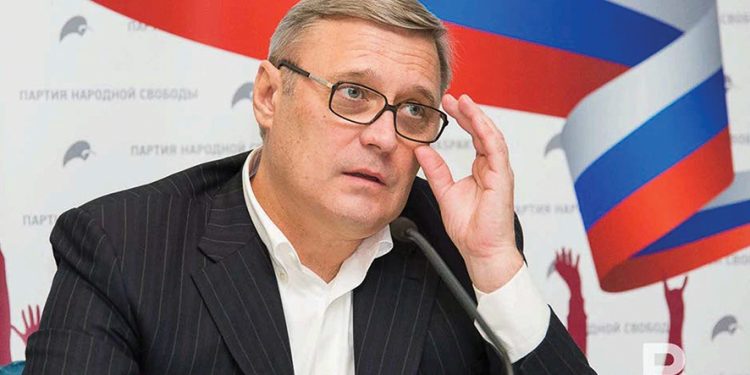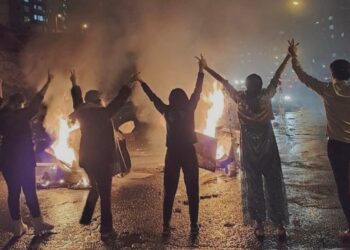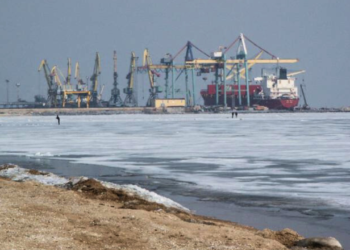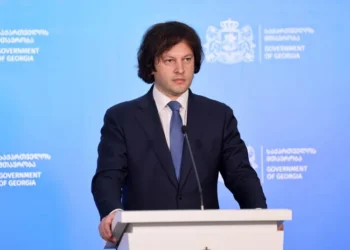It’s been said that every political crisis leaves behind winners and losers. As Mikhail Kasyanov, Russia’s former prime minister, weighs in on the recent Georgian elections in an interview with Radio Free Europe’s Georgian Service, his assessment is as sharp as it is troubling: “It is a victory for Putin,” he declares, though quickly downplays its scope. “I would say just [a minor] victory because [real] victory would be Ukraine. But of course, Putin is very much satisfied and very happy that [the elections] happened this way.”
For Kasyanov, who served as prime minister under Vladimir Putin in the early 2000s, Georgia’s elections signal more than just a local crisis. They represent yet another domino in the Kremlin’s geopolitical playbook, one designed to maintain influence over former Soviet states. Georgia’s ruling party, Georgian Dream, led by billionaire Bidzina Ivanishvili, plays a crucial role in this strategy. Kasyanov alleges a shadowy deal between Ivanishvili and Moscow: “I don’t know what promises Ivanishvili gave Putin when he left Russia with his money, but Georgia’s loyalty to Putin’s regime is clearly part of the bargain.”
For now, the tactics employed by the Georgian Dream party are clear. Using fear as a political tool, they have warned voters that supporting the opposition could bring war, a credible threat in a region where the memory of Russian aggression is vivid. “That is just playing on the feelings of people so that they win votes, to make people scared,” Kasyanov explains. He acknowledges that Georgians remain haunted by the 2008 war and the broader specter of renewed conflict. “Nobody wants war; everybody is terrified of it.”
I don’t know what promises Ivanishvili gave Putin when he left Russia with his money, but Georgia’s loyalty to Putin’s regime is clearly part of the bargain
Putin, meanwhile, is playing out a layered strategic move: to keep Georgia out of NATO while allowing Ivanishvili to maintain a precarious balancing act. “Georgians have visa-free [travel] and other privileges [with the EU]. I think the ruling party will continue playing this game: being independent, but so as not to humiliate Putin, not too independent.”
A particularly intriguing gambit of the Georgian Dream leadership is the promise of national unification: the tantalizing idea of bringing back the breakaway regions of Abkhazia and South Ossetia. According to Kasyanov, this narrative may conceal a far more transactional agenda. He floats the possibility of a deal between Ivanishvili and Putin: “For instance, just to give back South Ossetia and to require from Georgia recognition of Abkhazia.”
This trade-off, Kasyanov suggests, aligns with Putin’s strategic needs. “Putin needs Abkhazia because he’s building a new seaport there [in Ochamchire]. They need this part of the Black Sea to withdraw their fleet from Ukraine, from Crimea, to a safer place.” South Ossetia, by contrast, is expendable: its sparse population and isolated geography making it a low-stakes bargaining chip.
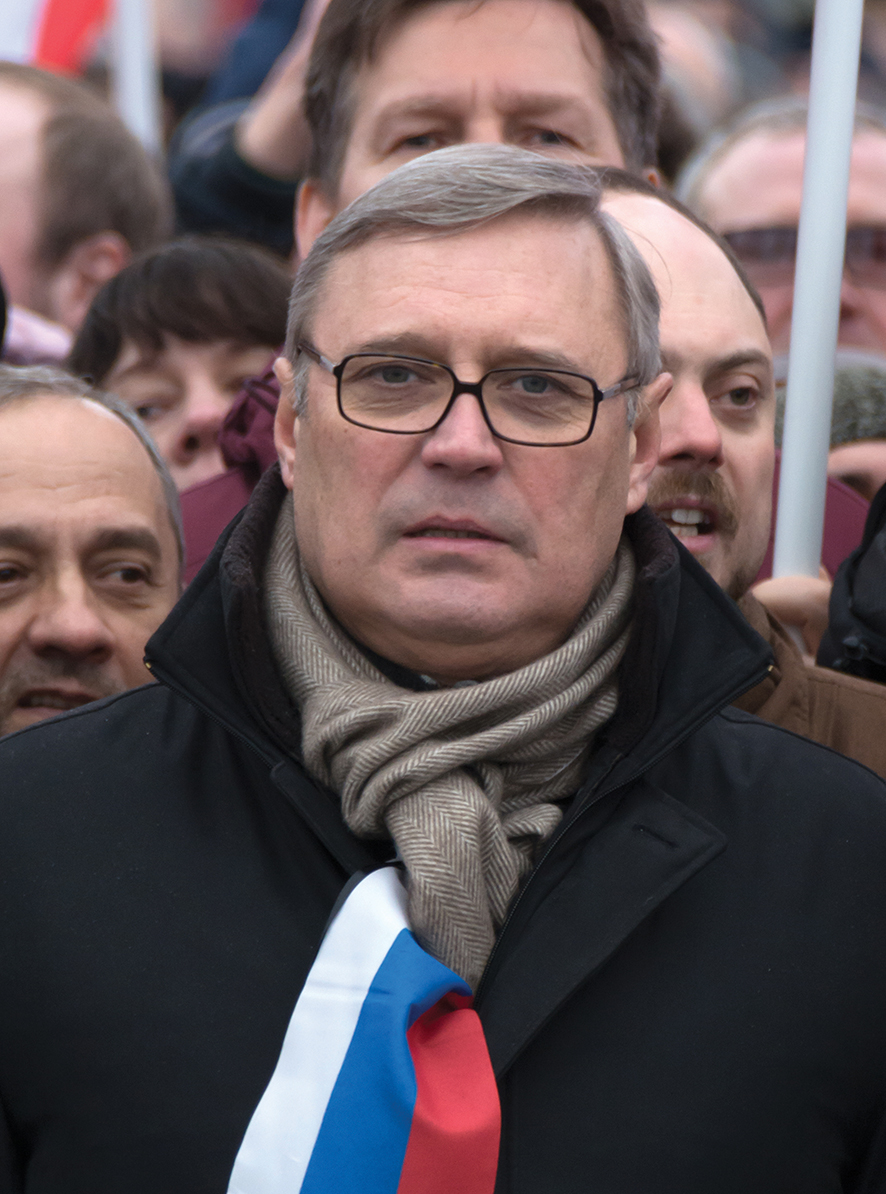
But if Moscow holds all the cards, why would it offer anything at all? Kasyanov chuckles at the question. “Perhaps Putin’s idea of a ‘reward’ will simply be not invading Georgia. That might be all they get.”
We underestimated Putin. We thought he would continue building a democratic state. But he was playing a role
These machinations are hardly new. As Kasyanov reflects on the origins of the conflicts in Abkhazia and South Ossetia in the 1990s, he describes a Russia that was more preoccupied with internal chaos than grand strategy. Under Boris Yeltsin, he recalls, “there was no deliberate policy to create problems in Georgia. The focus was on maintaining peace, albeit clumsily.” He dismisses the notion that today’s Kremlin policy is a mere continuation of Yeltsin’s. “That era was about survival. Under Putin, it’s about dominance.”
Kasyanov’s insights into Putin’s transformation from a seemingly reformist leader to a geopolitical antagonist are particularly striking. “In 1999 and 2000, we saw him as a young, consistent person who could continue the democratic policies begun under Yeltsin. He promised support for reforms, and we believed him,” Kasyanov recalls. But by 2005, something changed. “Putin decided he wasn’t getting the respect he deserved from the West. That’s when he began his shift toward authoritarianism.”
The former prime minister traces the roots of Putin’s grievances back to events like the 2003 Iraq War and the US withdrawal from the nuclear non-proliferation treaty. At the 2007 Munich Security Conference, he infamously declared that Russia “was surrounded by enemies.” For Kasyanov, the Bucharest NATO summit in April 2008 was the turning point. “After Bucharest, he decided to take a chance. Georgia appeared to be weak, and he decided to grab the opportunity.”
He recounts the ominous lead-up to the 2008 war: “The whole summer of 2008, I remember people of my political party who were living in the south of Russia saying every night they could see military equipment heading towards the Georgian border. It was three months of preparation. It was long planned and they were just waiting for the right moment.”
Looking back, Kasyanov doesn’t shy away from the bitter truth. “We underestimated Putin. We thought he would continue building a democratic state. Yeltsin believed in this. Me, I also believed in Putin—Boris Nemtsov, Igor Gaidar, and others, just everyone from our flank. We wanted to support Putin, and we did it, but he was playing a role. By 2005, it became clear: he wanted to be seen as the equal of the US president, dictating the fate of the world.”
And what of Russia’s future without Putin? Kasyanov believes in the possibility of a democratic revival, but only if Russians are willing to face the bitter truth. “Right now, propaganda has created cognitive dissonance. People want the war to stop, but don’t want to be defeated. The next government must clear their minds, reveal the atrocities, and rebuild trust. It won’t be easy, but it’s essential.”
Today’s Kremlin policy is not a continuation of Yeltsin’s. That era was about survival. Under Putin, it’s about dominance
For Kasyanov, the solution lies in systemic change: “Changing the Constitution, all that Putin has already added to the Constitution, we take it away and change it from a presidential republic to a parliamentary republic. That’s what I believe all opposition has agreed to.”
As for how Putin might exit the stage, Kasyanov offers no predictions, only a dose of historical realism. “Dictators disappear suddenly. Everything seems under control until one day, it isn’t. When that day comes, Russia will have a chance to chart a new path. If not, we’re headed for disaster.”
As Georgia grapples with its future and Ukraine continues its struggle, Kasyanov’s words are a stark reminder of the stakes at play. Whether the West is ready to confront this reality, Kasyanov suggests, may determine not just Georgia’s fate, but the fate of an entire region.
Interview by Vazha Tavberidze

